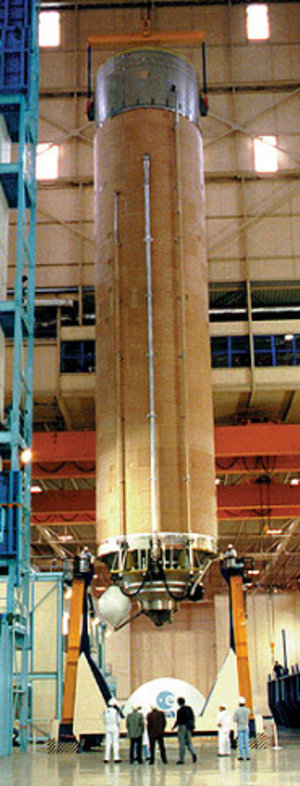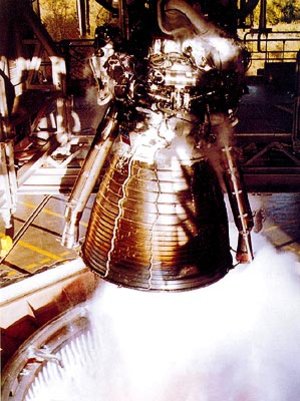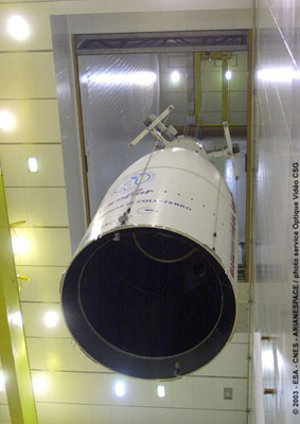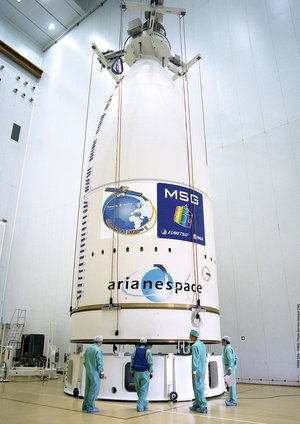Ariane 5 Generic

| Ariane 5G | |
|---|---|
| Height* | 46 to 52 m |
| Diameter | up to 5.4 m |
| Liftoff mass** | 746 tonnes |
| Payload mass*** | 6 tonnes GTO & 9.5 tonnes SSO |
Ariane 5 made its first successful launch on 30 October 1997. Its first operational flight took place in December 1999 when it launched ESA’s X-ray Multi-Mirror (XMM) satellite. Ariane 5 launched satellites for communications, Earth observation and scientific research.
Ariane 5 was used for launches into geostationary transfer orbit (GTO), medium and low Earth orbits, Sun-synchronous orbits (SSO) and Earth-escape trajectories.
All Ariane 5 versions were composed of a central core stage to which two solid boosters were attached. On top of this, different upper stage configurations were used.
In order to launch Ariane 5, ESA built a new launch site at Europe’s Spaceport near to the town of Kourou in French Guiana, as well as facilities to integrate the solid boosters and to produce the solid propellant used by the boosters.
* Depending on upper composite configuration
** Double launch
*** Dual launch, mass of spacecraft and adaptors
GTO = Geosynchronous Transfer Orbit (580 km x 35786 km x 7°)
SSO = Sun Synchronous Orbit (800 km x 800 km x 98.6°)












